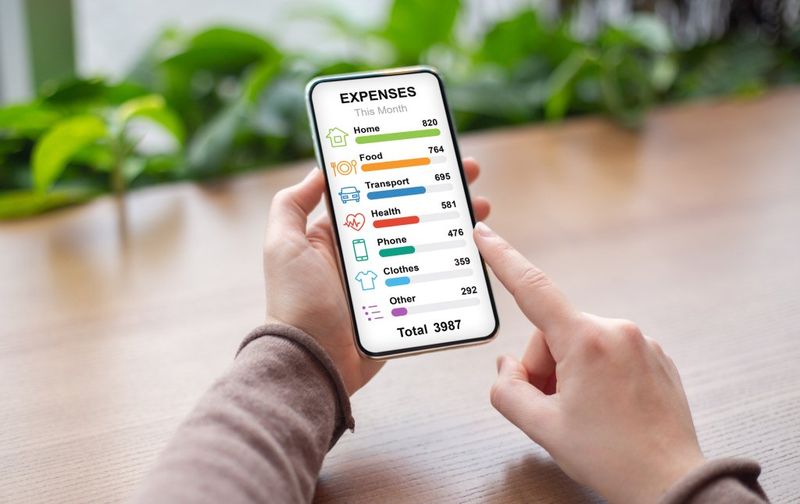10 Budgeting Myths That Keep People Broke

Budgeting is a fundamental aspect of financial health, yet several misconceptions can deter individuals from adopting effective budgeting practices. Here are some common budgeting myths and the truths that debunk them.
Myth 1: Budgeting Means Depriving Yourself

Budgeting is often misconstrued as a tool for financial deprivation. In reality, it’s about finding harmony between saving and spending. Imagine enjoying a night out without the guilt, because it’s part of your financial plan. Budgeting allows for both essentials and indulgences, ensuring your lifestyle is not compromised. By allocating resources wisely, you can enjoy life’s pleasures while still working toward financial goals. Think of it not as a restrictive diet, but as a healthy, sustainable lifestyle choice that accommodates your desires. Embrace budgeting as a path to guilt-free enjoyment and financial balance.
Myth 2: Only People Who Are Struggling Need a Budget

The misconception that budgeting is only for the financially struggling is widespread. In truth, everyone benefits from a well-planned budget. Whether you’re saving for a vacation or aiming to build an emergency fund, budgeting aligns spending with goals. It’s a tool for financial empowerment, regardless of income level. By planning expenditures, you can avoid unnecessary debt and enjoy financial peace of mind. It’s like having a roadmap for your finances, guiding you towards your aspirations. So, whether rich or just getting by, a budget is your ally in financial success.
Myth 3: Budgeting Is Too Time-Consuming

Many shy away from budgeting, thinking it requires too much time and effort. However, modern tools have simplified the process significantly. With apps and automated systems, maintaining a budget can take as little as 15 minutes a week. Picture sipping coffee while your app categorizes expenses for you. It’s less about number-crunching and more about setting and forgetting, with occasional adjustments. Budgeting efficiently fits into even the busiest of schedules, making financial management effortless. Embrace technology to streamline your budgeting, turning it into a task as quick as checking emails.
Myth 4: Budgets Never Work Because Things Always Change

Life’s unpredictability might suggest that budgets are futile, but flexibility is key. Budgets aren’t rigid; they’re adaptable frameworks designed to accommodate life’s ebbs and flows. Consider them like a flexible ruler, adjusting to the contours of your financial journey. Whether unexpected expenses arise or incomes change, a well-structured budget can evolve with you. This adaptability ensures that your financial goals remain intact despite life’s twists. By regularly reviewing and tweaking your budget, it remains a relevant tool, guiding you through financial unpredictability with resilience and adaptability.
Myth 5: Budgeting Is Just About Cutting Back

Budgeting is often mistaken for a mere exercise in frugality. However, it’s about understanding and optimizing cash flow, not just cutting corners. Imagine a pie chart, where sections are devoted to savings, expenses, and even income growth. Budgeting involves strategic decisions that might include reallocating funds or exploring new income avenues. It’s about making your money work for you, not just about spending less. By recognizing and managing financial resources, you ensure they align with long-term goals. Embrace budgeting as a comprehensive tool for financial empowerment, beyond mere expense reduction.
Myth 6: If You’re Already Good with Money, You Don’t Need a Budget

Even financial whizzes benefit from budgets, as they offer structure and clarity. Consider it the trophy-winning athlete who still uses a coach to refine their skills. A budget helps you track progress toward financial milestones, regardless of your current proficiency. It’s about staying on top of your financial game, ensuring continued success and growth. By regularly reviewing your financial landscape, you can make informed decisions and avoid complacency. Embrace budgeting as a tool for maintaining and enhancing financial health, no matter how adept you already are with money.
Myth 7: Budgeting Is Too Complicated

The notion that budgeting is an intricate puzzle deters many. Yet, simple methods like the 50/30/20 rule demystify the process. Imagine transforming a complex equation into an easy-to-understand formula. Budgeting doesn’t require advanced math, just straightforward strategies. Tools and apps further simplify the process, making it accessible to anyone. It’s about finding a method that suits your lifestyle and sticking to it. With clarity and simplicity, budgeting becomes a stress-free task. By embracing uncomplicated methods, you can easily manage your finances and achieve your financial aspirations.
Myth 8: Budgets Don’t Work for Irregular Incomes

For those with variable incomes, budgeting might seem impossible, yet it’s essential. Think of it as having a map for uncharted territories. By planning for lean months and saving during prosperous ones, budgeting provides stability. It involves setting aside a baseline for essential expenses and adjusting according to income fluctuations. This approach ensures you’re prepared for financial highs and lows. Budgeting gives you control over your finances, turning unpredictability into manageable growth. Embrace it as a critical tool for navigating the challenges of irregular income streams effectively.
Myth 9: Budgeting Means You Can’t Be Spontaneous

The fear that budgeting stifles spontaneity is unfounded. In fact, a well-crafted budget includes room for impromptu fun. Imagine a road trip planned on a whim, with expenses comfortably covered by discretionary funds. Budgeting isn’t about restrictions; it’s about informed choices. By setting aside funds for spontaneous activities, you enjoy freedom without financial stress. It’s about balancing fun and finances, ensuring joy isn’t sacrificed. With a budget, spontaneity is more than possible; it’s planned for. Enjoy life’s unexpected moments, knowing your budget has your back.
Myth 10: Once You Set a Budget, You’re Done

The idea that a budget is a one-time task is misleading. Picture a garden requiring regular care to flourish. Similarly, budgets need periodic reviews and adjustments to stay effective. As life evolves, so do your financial needs and goals. Regularly revisiting your budget ensures it reflects current realities, helping you stay on track. It’s a living document, evolving as you do. By nurturing your budget, you cultivate a healthier financial future. Embrace the ongoing nature of budgeting, ensuring it adapts to support your ever-changing life and aspirations.

Comments
Loading…